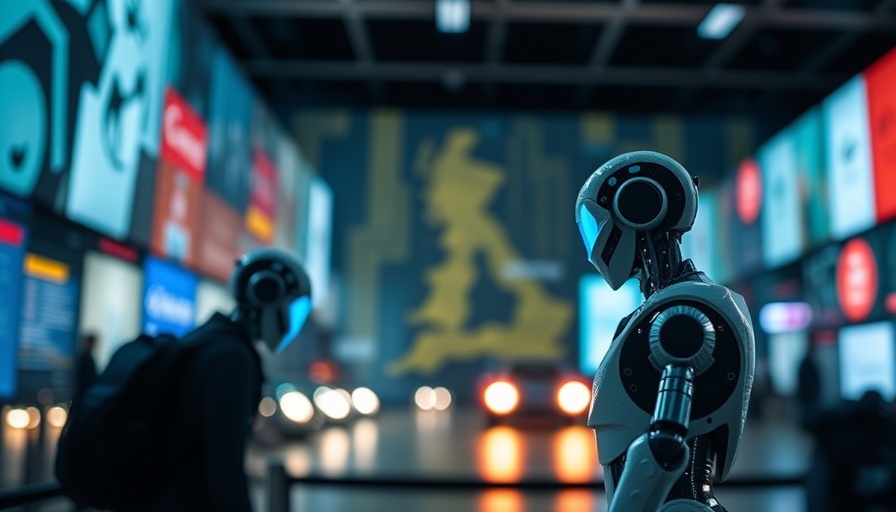
The Impact of AI on Graduate Employment: A Changing Landscape
As we tread deeper into the realm of artificial intelligence (AI), recent discussions highlight the challenges faced by recent graduates in the job market. Concerns have escalated surrounding the rise of AI-driven recruitment processes, which may overshadow the talent and potential of emerging professionals. A report by The Guardian found that while graduates particularly suffer in this shifting landscape, the dynamics of the job market aren't solely dictated by AI advancements.
Economic Factors vs. AI Influence
Kirsten Barnes from Bright Network pointed out that fluctuations in the graduate job market are not new. She states that external economic shifts, such as an increase in employer national insurance contributions along with the varying demands of businesses, significantly contribute to this crisis, rather than AI alone. The availability of entry-level positions is down by approximately one-third over the past two years—many companies are choosing to hire seasoned professionals instead.
AI's Role in Shaping Entry-Level Roles
While economic factors are undeniably at play, experts agree that AI has influenced the dynamics of hiring processes. Auria Heanley, co-founder of Oriel Partners, mentions a notable 30% decline in entry-level positions this year, attributing this drop to the growing capabilities of AI in performing tasks traditionally held by new graduates. These shifts necessitate a re-evaluation for graduates who are currently navigating a landscape where not just experience but adaptability and tech-savviness become crucial.
The Challenges Ahead for New Graduates
For graduates entering this challenging job market, the reality is stark. Many are left wondering how they can distinguish themselves amidst rising competition and an increasing reliance on AI tools. Those who once saw basic data entry and form-filling as viable career paths are now finding those roles dwindling. As Felix Mitchell from Instant Impact notes, the desire for mid-level skills over entry-level applicants is shaping recruitment decisions. Understanding the implications of this shift, graduates need to consider upskilling in areas aligned with AI rather than falling victim to it.
Finding Opportunity in Uncertainty
The key takeaway for new graduates isn’t just to adapt but to innovate in their job search strategies. By embracing technologies and demonstrating proficiency in AI tools, they can better position themselves in a landscape that values tech-savviness. Moreover, refining soft skills such as communication, creativity, and critical thinking can help graduates stand out. Opportunities still exist for those willing to navigate this new terrain with flexibility and resilience.
Take Action: Equip Yourself for the Future
For graduates looking to improve their chances of landing a job in this digital-first era, it’s crucial to re-evaluate their skill sets. There are numerous courses available that focus on AI literacy, data analysis, and digital marketing, which can amplify their appeal to employers. By investing in personal development and continuously acquiring new skills, they can maintain their competitiveness.
As AI technology evolves, the proactive step forward is to reflect on personal strengths and align them with market demands. To aid in this shift and for effective communication amidst AI development, tools like Prompt2Human can help enhance your appeal in written applications.
 Add Row
Add Row  Add
Add 




 Add Row
Add Row  Add
Add 

Write A Comment